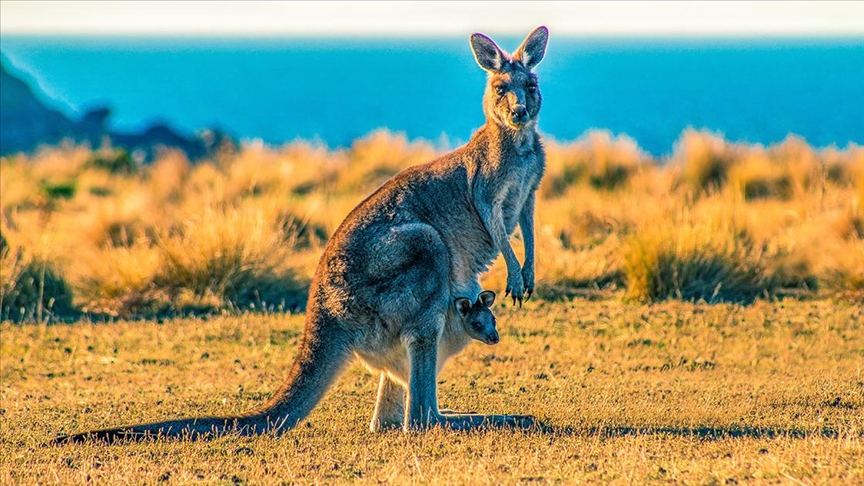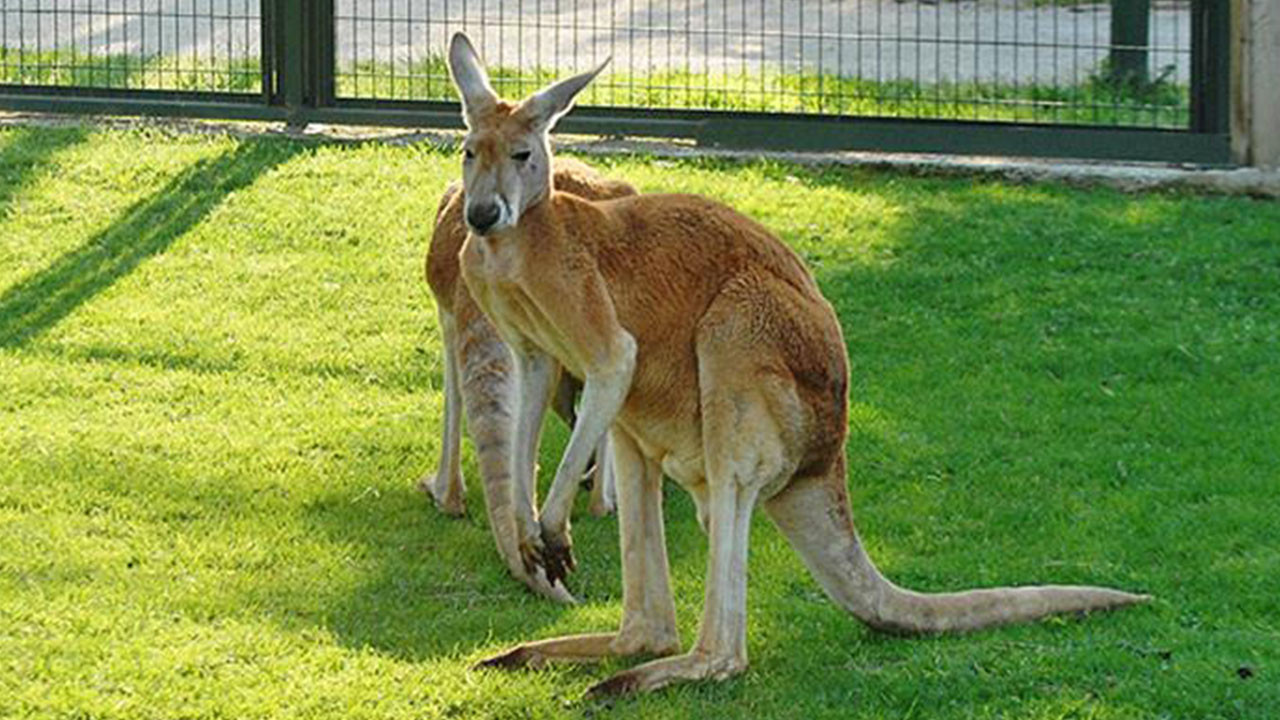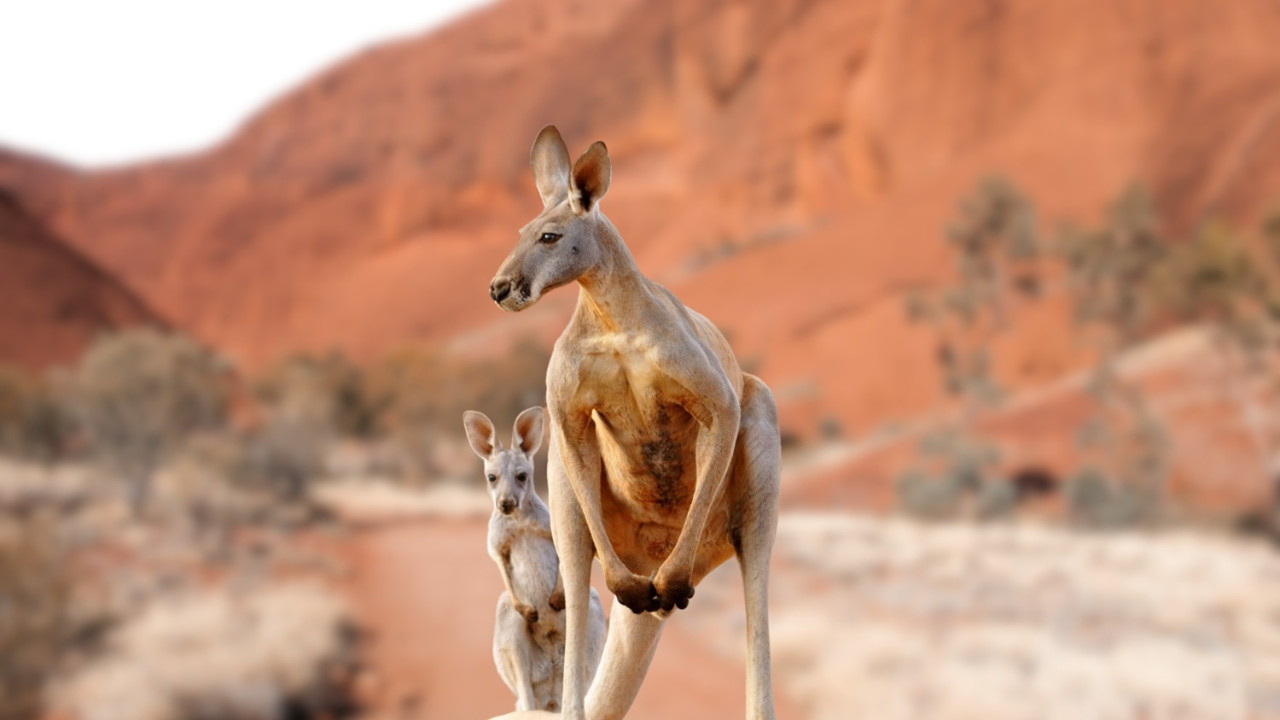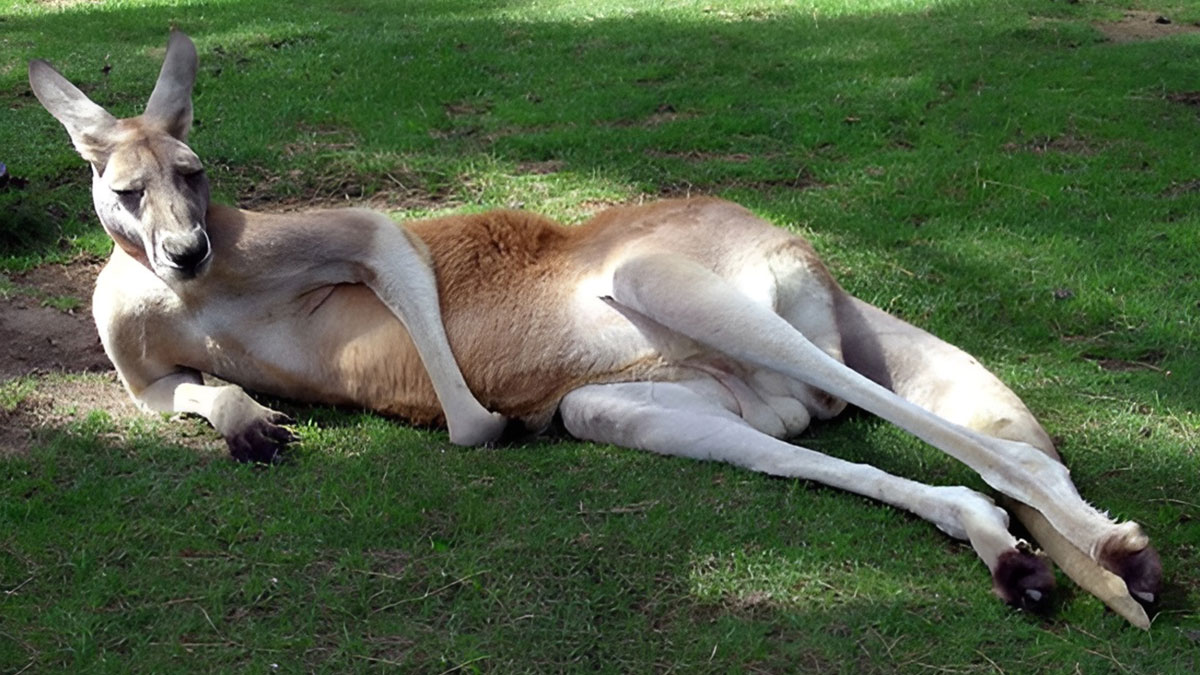Kangaroos: Iconic Symbols of Australia
Kangaroos: Iconic Symbols of Australia
Australia's unique wilderness is renowned for its wildlife, and perhaps none more so than kangaroos. Kangaroos are recognized worldwide as symbolic animals of Australia, distinguished by their unique physical features, lifestyles, and diverse species. In this article, we will delve into the biology, habitats, behaviors, species, and interactions with humans of kangaroos.
1. Biology and Morphology of Kangaroos
Kangaroos belong to the Marsupialia order of mammals and are typically identified by their large size, powerful hind legs, long tails, and in most species, non-functional front limbs. A common characteristic is the presence of a pouch in female kangaroos, facilitating early birth and the development of offspring. This pouch provides protection for the joey to complete its development post-birth and easy access to the mother's milk. Among different species of kangaroos, variations in size and coloration exist; while some may weigh only a few kilograms, others can reach human proportions.
2. Habitat of Kangaroos
Kangaroos are commonly found in the vast grasslands and forested areas of Australia. Different species inhabit different habitats; some prefer grassy plains, others forested regions, and some dwell in scrublands. They typically favor warmer climates and reside near water sources, although some species have adapted to more arid regions.
3. Behaviors of Kangaroos
Kangaroos often live in groups, with a dominant leader. These groups usually consist of females, males, and joeys. While most kangaroos are nocturnal, some species are also active during the day. Besides feeding, mating, and general social interactions, kangaroos exhibit various forms of communication, including tail movements, vocalizations, and body postures.
4. Species of Kangaroos
Australia is home to over 50 species of kangaroos. Common species include the Red Kangaroo, Grey Kangaroo, Wallaby, and Tree Kangaroo. Each species has specific lifestyle preferences and habitat requirements. For instance, Tree Kangaroos, as the name suggests, are a species that inhabits trees and is typically found in northern regions of Australia and Papua New Guinea.
5. Interactions between Kangaroos and Humans
Indigenous Australians have coexisted with kangaroos for centuries, hunting them for sustenance and utilizing various parts of the animal. However, with the arrival of European settlers, kangaroo populations faced significant pressure. Agricultural expansion, urban development, and hunting posed threats to various kangaroo species. Nevertheless, conservation efforts have increased in recent times, with restrictions on hunting and measures to protect kangaroo habitats. Tourism has also become a tool for supporting conservation and monitoring efforts.
6. Ecological Role of Kangaroos
Kangaroos play a crucial role in the Australian ecosystem. As herbivores, they assist in controlling grass and herb growth. Additionally, they serve as a food source for various predator species. Therefore, maintaining balanced kangaroo populations is vital for ecological equilibrium in Australia.
7. Conservation of Kangaroos
Conservation of kangaroos has become a priority both within Australia and internationally. Strategies such as preserving biodiversity, preventing habitat loss, and sustainable management of hunting are being employed to protect kangaroo populations. Furthermore, preserving and sustainably utilizing the areas where kangaroos reside is paramount.
8. The Future of Kangaroos
The future of kangaroos remains uncertain under human influence. Factors such as climate change, habitat destruction, hunting, and urban expansion continue to exert pressure on kangaroo populations. However, scientific research, conservation efforts, and public awareness campaigns offer hope for the preservation of kangaroo species and their habitats.
Kaynakça
- ^ "Macropus". paleobiodb.org. 30 Nisan 2021 tarihinde kaynağından arşivlendi. Erişim tarihi: 24 Eylül 2021.






















































